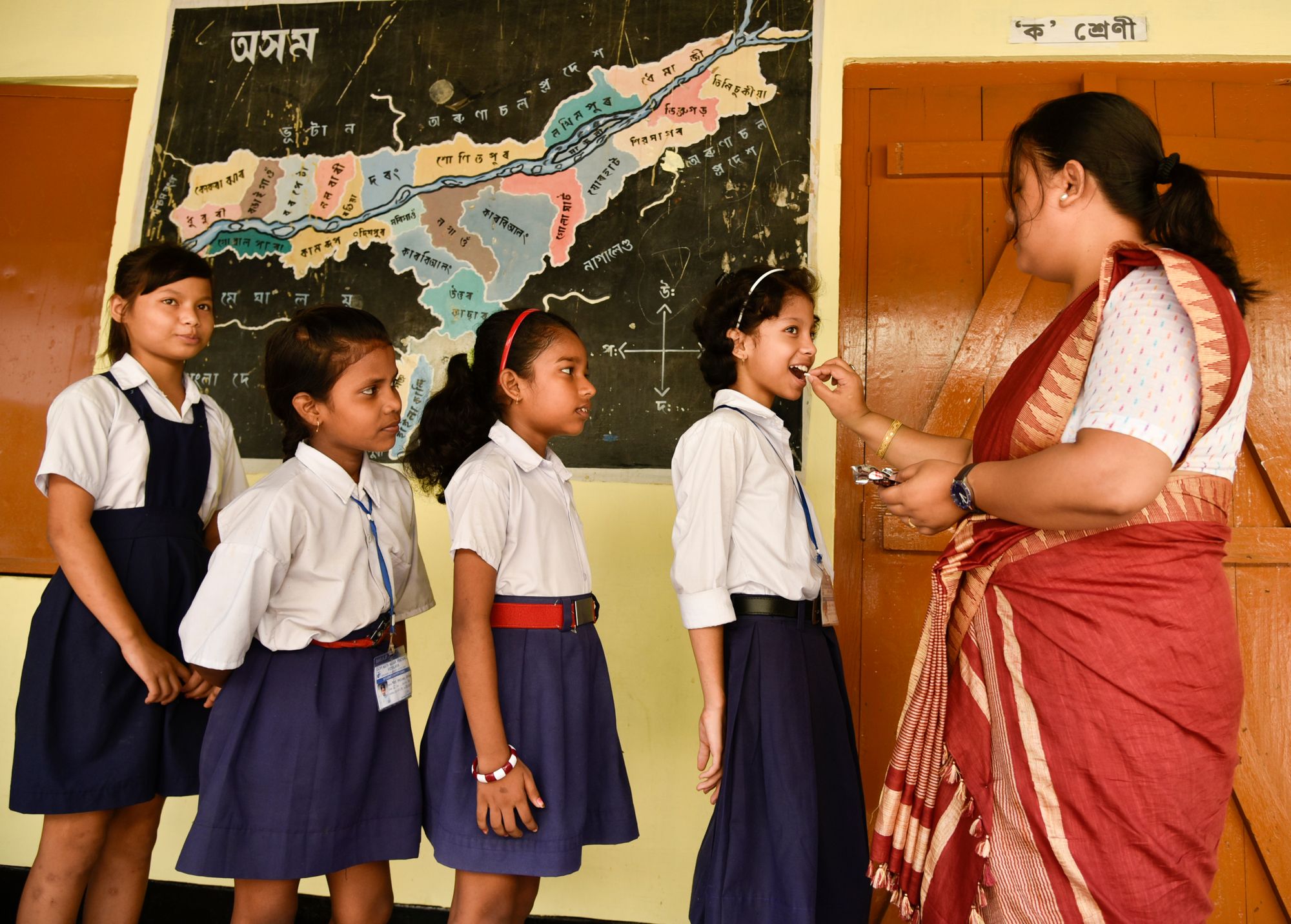
Deworming is the process to get rid of intestinal parasites like worms. According to WHO (World Health Organization), 7 out of 10 children in India, in the age group of 1 to 14 years are at risk of parasitic intestinal worms. Ministry of Health and Family Welfare, Government of India has taken an initiative to make every child in the country worm free. 10th February 2022 (India) is declared as National Deworming Day. It is one of the largest public health programs reaching a huge number of children during a short period. To share some insights on the same, we spoke to Dr Smita Naram, Co-Founder of Ayushakti. She is an Ayurvedic Practitioner with qualifications of Ayurved Madhyama and Ayurved Uttama of Shravan Masa Dakshina Prakisha Samitee. She is the fifth generation of vaidya in her family tradition of Ayurvedic Practice and she is practising 2500 years old lineage of Siddha Veda Tradition of Ayurveda. Read on to know what she had to tell us about Deworming in kids.
Dr Smita Naram
Intestinal worms are known as ‘krimi’ in Ayurveda. Books such as ‘Susruta Samhita’ and ‘Charaka Samhita’ give us more information about this problem in children. This very common problem can have some grave consequences on the health of your child. Once these worms find their way into the intestine, they can wreak havoc on the nutritional status of your child and cause a loss of appetite and other infections in the body. In most cases, if the worms are undetected for quite some time, the worms in the child’s system feed off tissues and this results in anaemia and there is a major loss of iron and protein. There is a wide variety of worms that can find their way into a child’s system such as tapeworms, roundworms & hookworms amongst a few. Thus, it is extremely crucial for a child to undergo the deworming process at regular intervals.
What is Deworming
Deworming is the process of getting rid of intestinal parasites through medication. A child must go through the deworming process at regular intervals, since there is a risk of the worms laying eggs, multiplying, and causing havoc in their systems. Some of these intestinal parasites may also be fatal and should never be ignored. The worms absorb the nutrients present in the child’s body and quickly make the child malnutrition and physically drained.
via GIPHY
How are worms transmitted?
It is impossible to monitor every movement of a child, but we can refer to some basic points to keep in mind to keep our children safe from these worms.
The transmission of these worms happens as a result of poor hygiene, sharing of water bottles, eating or coming in close contact with playground soil, eating undercooked meat, and another source of these worms could even be pets! Yes, unfortunately, your beloved pet can transfer worms to your child as well. It is extremely important to teach children to not share cutlery, or water bottles and maintain a hygienic routine on a daily basis.
Symptoms of worms in children
While in most cases loss of appetite and sudden weight loss are definite signs to check for worms, the affected child can also experience hunger pangs, rashes and itching and redness in the anal region, coughing and painful urination, fatigue, and tummy pain.
At what age should you start deworming your child? The appropriate age to start deworming your child is 2 years, then on, regular deworming is highly recommended. Especially with the times, we live in now and with the pandemic at our throats, deworming for children is a must and natural preventive remedies really take care of the same. You can find out about parasites by checking the stool couple of times also.
via GIPHY
Natural remedies for deworming children:
Ayushakti recommended herbal drink:
Ingredients:
Pinch of turmeric
½ tsp Carom seeds
½ tsp dry ginger powder
½ tsp Dill seed powder
Boil the above-mentioned ingredients in a glass of water and reduce it down to a well-mixed concoction. Consume this concoction mixed with honey, every day, twice a day until the symptoms in the child are reduced.Mix one teaspoon of papaya seeds fresh daily in porridge or smoothie, as it reduces worm eggs presence by 70% as per a study. This reduces pain, nausea, improves appetite & attacks eggs of parasites. Thus, recurrent worm attacks are stopped.
Following a healthy diet during the natural deworming process is of utmost importance as well. Include lots of fresh leafy vegetables and squashes along with a fair portion of plant-based proteins such as mung beans, yellow mung etc. Foods such as milk, chocolates, refined sugar and flour, wheat and sour foods are to be avoided along with red meat. In case it’s an absolute necessity the child can eat boiled eggs.
As we all know, prevention is better than cure and the necessary steps should always be taken to prevent your children from coming in contact with these parasites as much as possible, as well as following a natural deworming process once every 6 months.







